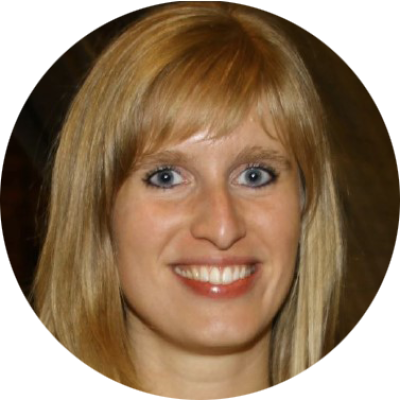
Naomi Dirckx
My research focuses on the mechanisms and impact of citrate delivery to the skeleton. The Clemens lab focusses on understanding the processes of osteoblast bioenergetics and how this is involved in the formation of bone. By reading old research papers [from the 1940s], my mentor discovered that 80% of our total body citrate is stored in the skeleton. However, nobody knew how it got there and which role it played. We now discovered that osteogenic expression of the citrate transporter SLC13A5 plays a significant role in citrate partitioning into bone. A malfunctioning transporter significantly impacts bone mass and strength, and causes hypomineralization of teeth in both mice and humans. Understanding that osteoblast bioenergetics is not only important for the generation of energy but also for providing critical metabolites, such as citrate, to facilitate bone mineral formation is a new concept to the field. This finding is immediately relevant to developing better strategies for not only improving bone mass but also bone quality in metabolic diseases such as osteoporosis and diabetes or in rare diseases (e.g., SLC13A5 disease).
Questions & Answers
Why did you choose Johns Hopkins for your work? I met my mentor, Dr. Clemens, when I was still a master’s student. I remember how scared I was to present my work to him, a well-known Hopkins professor, as a young and unexperienced student! However, after that we stayed in touch, and when I finished my Ph.D. in Belgium. I was ready for an adventure abroad and joined his lab as a postdoc. What does receiving this award mean to you personally and professionally? Do you have any connection with the particular award you received? After two very difficult years of pandemic, far away from family and without many opportunities to share my work and get recognition for it, receiving the Paul Ehrlich Award meant a lot to me. Paul Ehrlich did ground-breaking work in cancer research and immunity, and was awarded the Nobel Prize in Physiology or Medicine. Being extremely honored and humbled to receive this award, I hope it will also help me in kick-starting my career as an independent investigator to make significant contributions to the bone field. What contributed to your project’s success? (Special skills, interests, opportunities, guidance, etc.) I think this was the most challenging project I have ever worked on. Since this SLC13A5 research in bone was fairly new, it was hard to find good mouse models, kits, antibodies, methodologies, etc. However, I could benefit a lot from my mentor’s large network and the amazing research labs within Hopkins to find the right collaborations to successfully execute this project. Also collaborating with the TESS Research Foundation, a patient advocacy organization for SLC13A5 disease, gave me so many opportunities, contact with other researchers, industry and patients, and the ability to do research on human samples with mutations in SLC13A5. What thoughts do you have about Young Investigators’ Day itself, as a celebration of the roles students and fellows play in research at Hopkins? I think it is a great initiative to give recognition to students and postdocs who are often the driving engines in the advancement of scientific research. Receiving this award gives us more confidence in what we do and helps us in taking the next steps in our scientific careers. For the day itself, I can’t wait to meet the other awardees and learn about their ground-breaking research and future plans! What has been your best/most memorable experience while at Hopkins? On the personal side, I met the man of my life here! Despite living only an hour away from each other in Europe, it seems like we both had to come to Hopkins to meet each other! On the professional side, doing research among the best scientists in the world and being awarded with a K99/R00 career development grant last month made me feel extremely fortunate, grateful and excited for the future! What are your plans over the next year or so? Graduating, looking for faculty positions, etc.? I’d love to have my paper published in the next months, and then I will start my quest for faculty positions, as my heart lies in academia. Tell me something interesting about yourself that makes you unique. Do you have any special hobbies, interests or life experiences? I grew up in a small farmers village in Belgium, where I loved to spend time training horses. As I loved that way of living, I didn’t mind spending three hours in the car each day to get to the lab. Since I moved to Baltimore, I became a real city girl that loves working out in the gym, dancing and going out for dinner. I also adopted a very fluffy and adorable cat, Hoover, within the first month of moving to Baltimore. I think he is now the most famous cat of Hopkins!